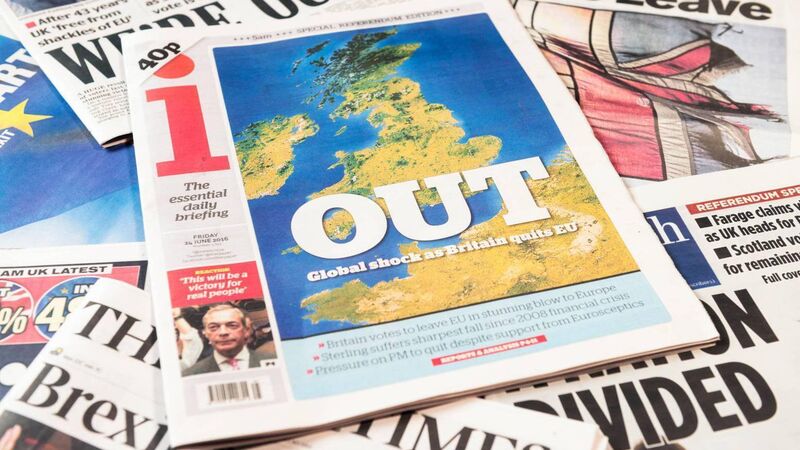Book review: a treatise of Britain's time in and out of the EU

Edinburgh, UK - June 24, 2016: The front pages of a selection of British newspapers on the day following the referendum on membership of the European Union, known as the Brexit referendum.
- This Sovereign Isle: Britain In and Out of Europe
- Robert Tombs
- Allen Lane, £16.99




